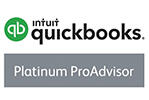HMRC launches remittance basis toolkit
A new toolkit aimed at assisting non-domiciled taxpayers that use the remittance basis has been launched. What does this do?

The remittance basis is available to those that are not domiciled in the UK. Where a claim is made (or the remittance basis applies automatically), non-domicile individuals may only be taxed on non-UK income and capital gains to the extent that it is remitted to the UK. The concept of a “remittance” is wide, and as such there are various risks and pitfalls that are often overlooked. For example, if the remittance basis is not claimed in one year, but income generated offshore in a year that the remittance basis is claimed is then remitted, the full amount will be taxable in the UK.
The new toolkit aims to help assess whether or not taxable remittances have been made. It is aimed at advisors, but is also a useful benchmark for taxpayers to refer to in terms of what documentation they will need to send to allow the advisor to check the position. The focus is on checking source documents, and areas of risk are outlined such as credit card usage. The toolkit helpfully contains links to HMRC guidance on various matters.
Related Topics
-
CT61
-
Repayment thresholds for student finance confirmed
Repaying student finance can seem complicated, with a number of different plan types each having different repayment thresholds. The thresholds for the forthcoming year have just been confirmed. What’s the full story?
-
Advance assurance pilot confirmed
There have been a number of changes to how research and development tax credits are claimed in recent years. HMRC has now confirmed that a pilot of a new clearance procedure will begin later this year. What do we know so far?



 This website uses both its own and third-party cookies to analyze our services and navigation on our website in order to improve its contents (analytical purposes: measure visits and sources of web traffic). The legal basis is the consent of the user, except in the case of basic cookies, which are essential to navigate this website.
This website uses both its own and third-party cookies to analyze our services and navigation on our website in order to improve its contents (analytical purposes: measure visits and sources of web traffic). The legal basis is the consent of the user, except in the case of basic cookies, which are essential to navigate this website.